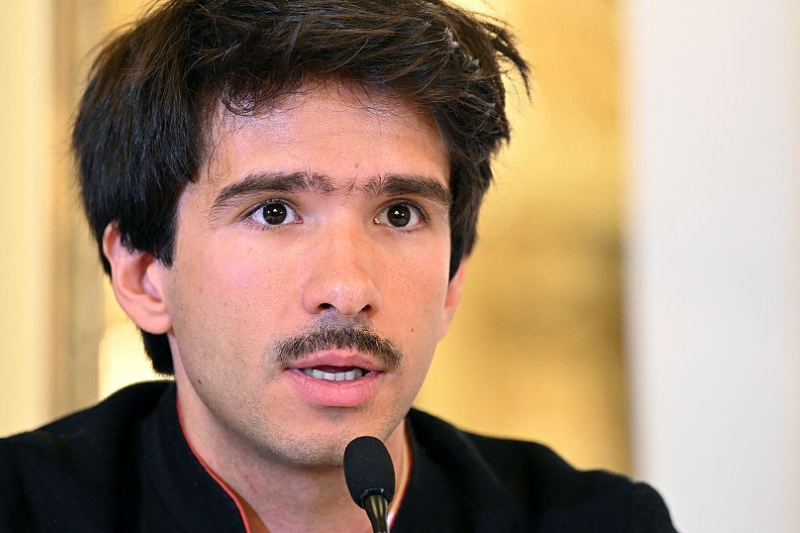Last updated on August 10th, 2023 at 11:49 pm
Juan Branco, a French-Spanish lawyer who was arrested in Dakar on Sunday in connection with recent unrest in Senegal, was freed on Monday under judicial monitoring before being deported, according to the authorities and his lawyers. After several days of searching, Mr. Branco was taken into custody on Friday evening in Mauritania. He had unlawfully entered Senegal a few days earlier in order to take part in the defense of opposition politician Ousmane Sonko, despite there being an arrest warrant out for him. On Sunday, he was handed over to the police in Senegal, where he is currently being held on a variety of allegations.
“He was taken from prison this morning (Monday) and presented to the judge, who informed him that he had been placed under judicial supervision,” Robin Binsard, one of his lawyers, said in an interview with AFP. According to him, he was subsequently handed over to the police in order to be deported.
According to statements made to the press by Senegal’s Minister of Justice, Ismaila Madior Fall, “the Minister of the Interior has issued an order to deport him. “Within the next few hours, he should leave Senegal.” Mr. Binsard continued by saying, “He is exhausted but relieved.” The minister stated that Mr. Branco had shown no interest in eating or drinking while he was being held in custody.
According to his lawyers, Mr. Branco was charged with assault, conspiracy, distributing false news, acts and maneuvers likely to jeopardize public security or produce significant political disturbance, unlawful residence, and contempt of court on Sunday. The charges stem from an incident that occurred on Saturday.
The authorities have taken the actions of the Spanish-French lawyer very seriously. This lawyer has created a reputation for himself in the country by participating in the defense of Ousmane Sonko, an opponent who has been in a standoff with the authorities and the courts since 2021. The clash between Mr. Sonko, a contender for president in the 2024 election, and the authorities has resulted in multiple instances of violence that have resulted in the deaths of multiple people.
When Mr. Branco made the announcement in France in June that he was filing a complaint against Senegalese President Macky Sall for “crimes against humanity” at a time when the country had just witnessed its worst turmoil in years, he garnered a lot of attention. He also asked the International Criminal Court (ICC), which is based in The Hague, to look into Mr. Sall. He is well-known for making extremely pointed criticisms of the administration of Senegal.
Since the middle of July, Mr. Branco has been the subject of a court investigation in the Republic of Senegal as well as an international arrest warrant. The administration has referred to him as a publicity-hungry attorney who has been a contributing factor to the tensions that have been present in the nation over the past few months. According to statements made by the Minister of Justice, he “attempted to experiment with his theory of revolution and insurrection in Senegal.”
Two days after Mr. Sonko had been arrested and was scheduled to be detained for a variety of crimes, including calling for rebellion, the authorities took it badly when the lawyer disobeyed the arrest warrant against him and unexpectedly arrived at a press conference of Mr. Sonko’s lawyers on the 30th of July.
Keep reading
According to the Senegalese media, Mr. Branco then vanished before being apprehended on Sunday in Mauritania under circumstances that are still unknown. He was reportedly on board a pirogue and disguised as a fisherman at the time of his detention. According to what the minister had to say, some of the allegations made against Mr. Branco were of a criminal nature. He said, “He could have been in custody for years.”
He gave his word that the proceedings would go on even though the defendant was released. According to the minister, “all of the investigative steps will be taken; secondly, it is possible that his judicial supervision will be revoked; and thirdly, it is possible that he will be tried; he could be sentenced. We have judicial cooperation relations with France, which means that he can serve his sentence in France.”
“However, what was essential in this scenario was for Senegal to demonstrate its sovereignty and for Senegal to serve as an example,” he continued. Mr. Branco was eligible to get help from the French and Spanish consulates.

